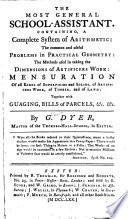 | Gilbert Dyer - Arithmetic - 1770 - 240 pages
...Debtor or Creditor. --,'-•; , '• ,f. • 139. The tommon Rule is, Multiply each Sum of Money into the Time at which it is due, and divide the Sum of the Products by the whole Debt, for the * equated Time required. • • it ii -*•'-. '•• i_ • .. •• •-*•.... | |
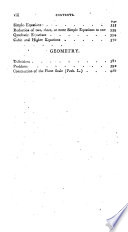 | Mathematics - 1801 - 446 pages
...shall be sustained by either party. RULE.* Multiply each payment by die time, at which it is due ; then divide the sum of the products by the sum of the payments; and the quotient will_be the time required. EXAMPLES. * This rule is founded upon a supposition, that... | |
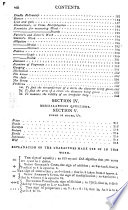 | Daniel Adams - Arithmetic - 1807 - 248 pages
...time to pay at once, several debts due at different times so that neither party shall sustain loss. RULE. MULTIPLY each payment by the time at which it is due ; then divide the sum of the products by the sum of the payments, and the quAtÀM&TWA,4 equated time.... | |
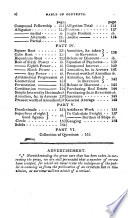 | James Thompson - Arithmetic - 1808 - 176 pages
...the whole debt to do wflich the following is the common RULE — Multiply each payment by its time, and divide the sum of the products by the sum of the. payments ; the quoticut will be the equated tint«. EXAMPLES. 1. A. owes B. g600 to pay at 40 days, g200 at 60 days,... | |
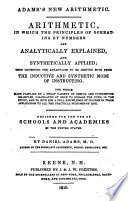 | Daniel Adams - Arithmetic - 1810 - 190 pages
...find the mean time for several payments, — RUt.E : — Multiply each sum by its time of payment, and divide the sum of the products by the sum of the payments, and the quotient will be the answer. Note. This rale is founded on the supposition, that what is gained... | |
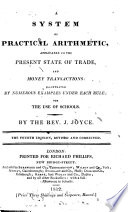 | Jeremiah Joyce - Arithmetic - 1812 - 274 pages
...loss either to the holder or receiver. "Rtit'E. Multiply each payment by the time at which it becomes due, and divide the sum of the products by the sum •of the payments, and the quotient will be the medium time required. Ex. 1. I have to receive £967 in notes, as 'follow;... | |
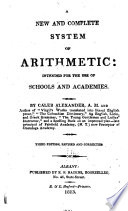 | Caleb Alexander - Arithmetic - 1813 - 152 pages
...times, нге reduced to one propertional pay« ment, so that no loss may be sustained by either party. RULE. Multiply each payment by the time at which it is due, and'divide the sum of the products by the sum of the payments ; the quotient will be the 'equated time... | |
 | John Mason Good - 1819 - 822 pages
...différent times, so that no loss shall be sustained by either party. '1 he rule commonly given is, lo multiply each payment by the time at which it is due;...the sum of the products by the sum of the payments, for the time required. But this rule is not accurate, as was first »liown, we believe, by Mr. Malcolm,... | |
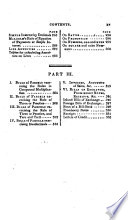 | Thomas Keith - Arithmetic - 1822 - 354 pages
...each be reduced to the same denomination. Then, multiply each payment by the time at which it becomes due ; and divide the sum of the products by the sum of the payments, the quotient will be the time required. Note 1. As this Rule of Equation of Payments has been the occasion of more disputes... | |
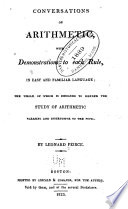 | Leonard Pierce - Arithmetic - 1823 - 170 pages
...by which payments are generally equated. Multiply each payment by the time at which it is due ; then divide the sum of the products by the sum of the payments, and the quotient will be the time required. * This rule is founded on the supposition, that the snm... | |
| |